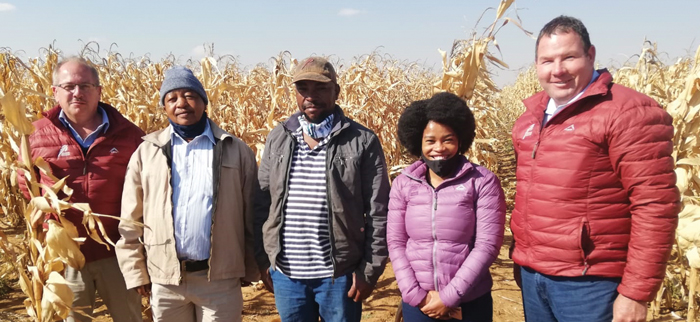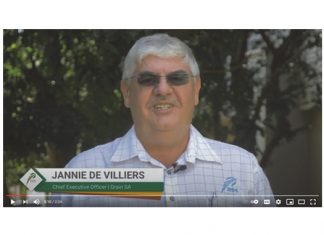Being a farmer in South Africa has to be one of the hardest professions. The challenges farmers go through are overwhelming, to say the least. Their host of problems include farm safety, infrastructure, access to markets, financial constraints perpetuated by drought conditions, uncertainty in policy direction and a teetering economy.
With the harvest period upon us, things have been rather good for most summer-grain producers, with average to above average yields in most areas. Oilseeds are already harvested, while maize is still being harvested in the Western and Eastern Free State.
I recently had the privilege to travel around the country and visit 20 black grain farmers in five provinces, namely Mpumalanga, KwaZulu-Natal, the Eastern Cape, North West and the Free State. Given my background of being an agricultural economist in the grain sector, I work with farmers daily, but I am based in the city in an office set-up. Our means of communication is via phone or email. We often visit regions, but typically meet in a central location, usually in a town of that region. My exposure to farm life is rather limited and the farms I have visited in the past were more commercial and well developed. We visited different-sized farming operations – from smallholder to new era commercial farmers.
Firstly, I was amazed at the state of the road infrastructure – if there was any – to reach some of these farmers. How do they even reach the market or how do inputs reach their farms? But somehow, they make do. The majority of these areas do not have running water or electricity. Despite all these apparent challenges, one is always welcomed with a big, warm smile when arriving at the farm.
Within these communities there is a social fabric and a sense of warmth like nowhere else I have been. Although each community has its social ills, the presence of a farmer always makes a difference – from job creation to fostering children and even feeding orphaned or elderly neighbours. Among all the farmers that we met, I should just acknowledge the importance of mentorship and partnerships with input suppliers. The knowledge transfer, friendship, trust and dedication are seen through the improvement of each farming operation.
I must say, the subsistence and smallholder farmers captured my heart; they farm on 1 ha to 15 ha of land. With the help of Grain SA, these farmers can produce commercial yields on their small pieces of land, allowing them to feed their families and animals and to sell the surplus to their neighbours or even to mills close by. The pride in their eyes when they talk about their farming operations and show off their fields or great-looking harvest stored in cob cages, is beyond amazing. Most of them work the land using hand tools and they thresh using communal threshing machines that belong to their study groups. This is truly a labour of love. I witnessed first-hand the daily struggles that these farmers face. From a farmer with worry in his eyes because his cow is struggling to calve, to a farmer who has to get water over a kilometre away from her home, but still maintains a vegetable garden. The amazing thing is that they remain so resilient and hopeful regardless of their circumstances.

Moving on to potential commercial and commercial farmers, I have one word to describe this category – impressive. Most of these farms have been taken over from their parents by the younger generation. It is remarkable to see young people so passionate about agriculture and doing well. The use of technology, the level of innovation and new techniques of doing things are astonishing. Although there are many challenges, these young people are committed to the cause for the long haul.
If you ever have an opportunity to visit with a farmer, the conversation will flow easily if you ask about either the weather, their animals, machinery or their family. Throughout all our visits, I met the most humble human beings. What they all had in common was the love they have for the land. Some of us even call it dirt, but to them it is potential. No matter their age, the heart of a farmer remains the same. In their heart lies the desire to bring life to the soil and harvest that life to provide for others. They are tough, true and determined.
Reflecting on this journey, I salute these unsung heroes who contribute to our country’s food security despite the odds. I have learnt a lot about grain production and the challenges it presents. This has given me a new perspective on how I can cater to the needs of a farmer. This article was first published in Pula Imvula.



















